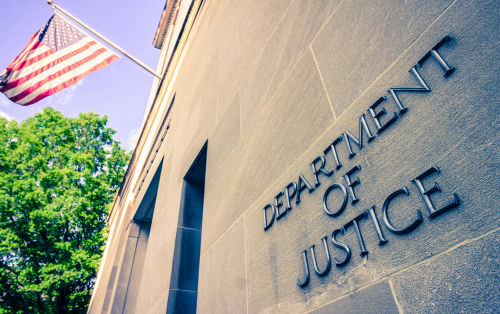A bombshell affidavit reveals alleged DOJ coercion in the Proud Boys case, raising questions about political motivations behind the convictions.
Bertino’s Stunning Recantation
In a surprising turn of events, Jeremy Bertino, a former Proud Boys member and key witness in the January 6 prosecutions, has released an affidavit claiming his testimony was coerced by federal agents and prosecutors. Bertino’s testimony was instrumental in securing the convictions of Enrique Tarrio and four others, known as the “Seditious 5,” for seditious conspiracy. This new development has cast doubt on the integrity of the trial and raised concerns about potential prosecutorial misconduct.
Enrique Tarrio, the former leader of the Proud Boys, is among those convicted and sentenced to 22 years in prison. Following the release of Bertino’s affidavit, Tarrio has called for a thorough investigation into the Department of Justice’s (DOJ) conduct during the trial. He argues that the case against him and his fellow defendants was politically motivated and that Bertino’s coerced testimony was a critical element in the convictions.
Legal and Political Ramifications
The allegations made by Bertino have reignited the debate over the fairness of the January 6 prosecutions. Critics argue that the use of coerced testimony undermines the credibility of the justice system and sets a dangerous precedent for future cases. The DOJ has not yet responded to these serious accusations, leaving the public and legal experts to speculate on potential legal ramifications, including possible appeals or retrials for those convicted.
The political implications of these revelations are equally significant. The Proud Boys’ prosecution, occurring during a period of heightened political polarization, was already controversial. Bertino’s affidavit has added fuel to the fire, intensifying discussions around government overreach and the potential misuse of prosecutorial power for political gain. As the story unfolds, it remains to be seen how these allegations will impact public trust in federal law enforcement and the justice system.
Implications for the Future
As Bertino’s claims continue to garner attention, they highlight the broader issues surrounding the use of cooperating witnesses in high-profile political cases. Legal analysts and scholars have noted that while recantations by witnesses are not uncommon, they require careful judicial scrutiny to ensure justice is served. The outcome of this case could have long-term implications for the legal profession, potentially prompting reforms in the ethics of plea deals and witness coercion.
Bombshell Confession: J6er Jeremy Bertino's Affidavit Exposes DOJ Coercion in Proud Boys Case – Enrique Tarrio Teases Interview with the J6 Turncoat Who Helped Feds Send Him to Prison for 22 Yrs https://t.co/7eIoKVUUtG #gatewaypundit via @gatewaypundit
— Debra Dosch (@DebraDosch) August 26, 2025
The ongoing debate over the Proud Boys’ prosecution and the DOJ’s conduct reflects the deepening divisions within American society. As the country approaches another election cycle, these issues are likely to play a significant role in shaping public discourse and political strategies. Whether Bertino’s affidavit will lead to tangible changes in the justice system or remain a point of contention is yet to be determined.
Sources:
LA Times: Background on Tarrio, Proud Boys, and January 6 prosecutions
DOJ Press Release: Official confirmation of convictions and sentences

